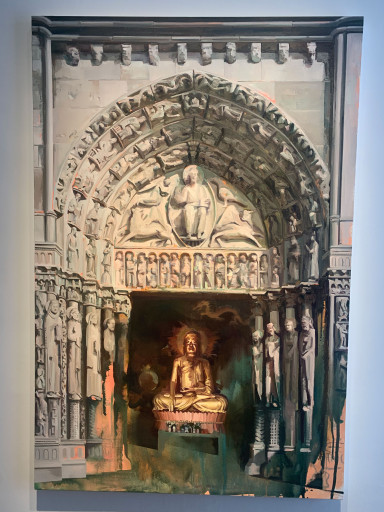

Stephan
Zilkens
,
Zilkens‘ News Blog 23 2024
‘Welt weit Wolfen’ is the name of a festival of many art forms in the East of Germany, whose main sponsor is the Bitterfeld-Wolfen chemical park. Wolfen was once the centre of German film and photo production. AGFA and ORWO had their origins here. Nowadays, the chemical park with its many companies is the main attraction, as an employer that is well aware of the importance of a culturally interesting environment in order to secure the business location. We keep our fingers crossed that the festival will be noticed by more than just the local press.
This week sees the start of a number of art auctions around the world. In Germany, things are happening thick and fast: Lempertz is starting on 4 June with photography and an evening auction, followed on 5 June by van Ham with an evening auction, on 6 June Karl&Faber is trying its hand during the day (like the aforementioned houses) and on 7 June Ketterer is again trying to attract interested parties in the evening to get enthusiastic about one of the most expensive lots in German auction history. Jawlensky's Spanish Dancer, with its surprisingly straight neck, is expected to fetch between EUR 7 and 10 million plus buyer's premium. Unlike Caspar David Friedrich (CDF), Jawlensky is fortunately not quite so German. But who knows what covetousness will be stirred up by public authorities, which, in accordance with the Grütters cultural expropriation law (and thus approved by the CDU), are trying to impose an export ban on such a work through interest-related expert committees, all of which is disguised as cultural protection? This is what happened to the sketchbook by CDF, which will now presumably disappear into a vault for another 200 years. Unfair legal regulations are damaging to the exchange of culture and the market.
Dr Herbert Palmberger, who worked for 20 years as an insurer and reinsurer and in the 1990s was also involved in the art insurance business of (old) Chubb, before going on to work as a lawyer for insurance issues in large law firms, passed away last week.
You might think that everyone who is involved in formulating rules and laws in parliaments is an ardent follower of Karl Marx, who famously saw the concentration of capital in the hands of a few as the best prerequisite for a socialist revolution. A process of concentration has been taking place in the insurance industry and among insurance brokers for some time now. A similar trend can be observed among manufacturing companies and banks. The reasons for this are often regulations that are well-intentioned but labour-intensive and that small companies can hardly cope with in organisational and financial terms if they want to remain competitive. The solution is then to sell, and the buyer is happy about the economies of scale. Sometimes, however, it is enough to deliberately not understand the value of a company or assets, as the Swiss Young Socialists are now demonstrating by calling for a 50% inheritance tax on assets worth more than CHF 50 million. The vote on this may not take place until 2026, but the unrest is already setting in. Assets are not the same as the liquidity with which taxes are paid. You have to part with assets to get liquidity. As a rule, a larger company then buys a company that is run by its owner, which then disappears (concentration, Karl Marx, see above). Anyone who inherits a decent art collection has also only inherited assets whose actual value only becomes apparent and liquid when they are sold. Who benefits from these coercive measures? State and supranational organisations? World peace? Hardly - not even the cultural institutions, because their beneficiaries are considered to belong to the cultural and thus, wrongly, implicitly rather wealthy class. Rather, it is a situation in which the party is always right and that chapter we actually wanted to leave behind us.
Next Monday we will know how the European Parliament will be composed and whether anything will come of it for culture. My request: go and vote – even if it is only one vote, it will be used to further your interests and is a vote against those whose ideas do not appeal to you, even if the others are not convincing.
With this in mind, we wish you an insightful week
Stephan Zilkens and the team at Zilkens Fine Art Insurance Broker GmbH in Solothurn and Cologne.
automatically translated